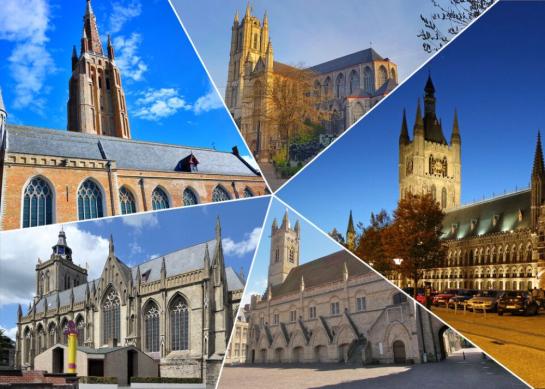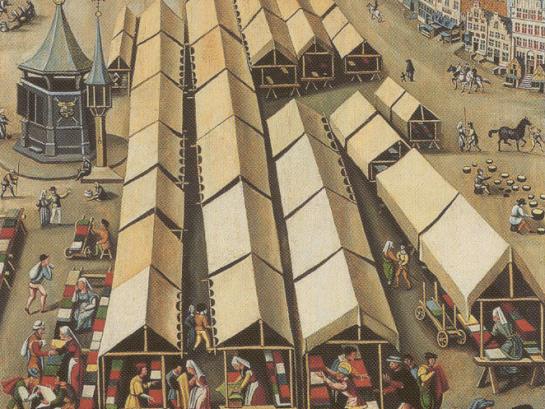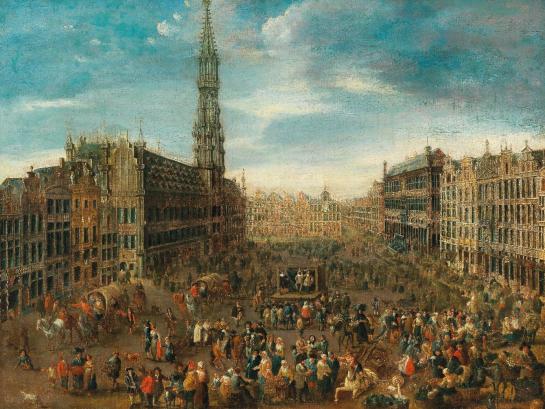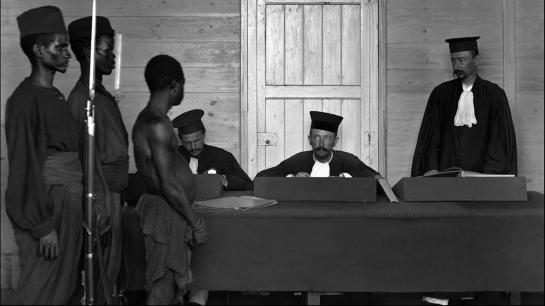In the spotlight
Consulting all current and past projects of SHOC research group is possible on our page on the VUB research portal. Below, you will only find a spotlighted selection of large-scale projects that are at the core of the SHOC research agenda.
Re-building Brussels
The proposed research Re-Building Brussels (1695-2025): the construction sector as an engine for social inclusion and circularity builds upon the ongoing IRP programme (2016-2021) Building Brussels. Brussels City Builders and the Production of Space, 1794-2015 in which research teams Architectural Engineering (AELA), Historical Research into Urban Transformation Processes (HOST) and Cosmopolis – Centre for Urban Research (COSM) joined forces to investigate the viability of small and medium enterprises (SMEs) in the construction sector in Brussels, an understudied yet essential sector in economic history, and an important one for the foundational economy and the productive city. The first phase of the programme delivered a detailed inventory of the sector from material suppliers over builders to finishers over the past 200 years and yielded important insights on changing networks, infrastructural needs, hotspots, types of workspaces and their integration in urban space. As such, it identified urbanist and planning strategies to safeguard space for production in dense and mixed urban areas today (Degraeve, De Boeck, Van Dyck 2018).
In this second programme, we aim to improve our understanding of the long-term dynamics that shaped the relationship between urban construction and its ecological and social impact. This project will therefore examine the ways in which - and the reasons why - material reuse and the labour market have evolved in Brussels since the beginning of modern urban growth in the eighteenth century until today. This research will at the same time tackle contemporary urban challenges of the circular economy and the labour market as a stepping-stone for social mobility, reducing intra-urban inequalities. (More information)
Witnesses
Oostkamp, 1846. The merchant Bernardus Dhoore fell victim to several coal thefts. Who had done it, or who had seen or heard something suspicious? Witness depositions were one way to discover the 'truth' and track down the culprit. These sources remain of great importance today, just as they were back then because they reveal an exceptional amount of information about past societies. These narratives of witness experiences reveal the daily reality of a wide range of people, including male and female commoners who often remain hidden for historians. How did contemporaries use public space? What were the norms and values at that time? How were social relations shaped? Did the vernacular change during time? This project Witnesses (Vrije Universiteit Brussel) aims to gather and transcribe 18th and 19th century witness depositions preserved at the various city and state archives in Belgium with the help of volunteers. These transcriptions will enrich our understanding of past crime, language history, past societies, and so much more. (More information)
Consult the website of the Witnesses project.
The Make-Up of the Cities

Whereas more than half of today’s global population live in cities, this has not always been the case. Important steps in the development towards our present-day urbanised societies were taken during the second half of the middle ages in the Low Countries (roughly what is now Belgium, the Netherlands, Luxemburg and northern France), where cities came to dominate political, economic and social life in a way they did not do elsewhere in Europe. Scholars worldwide have studied medieval urban life in this area since the nineteenth century, but have failed to answer questions about some of its most crucial aspects. Largely responsible for these frustrations was a tradition of working in isolated disciplines and going back to the same problematic data sets. Make-Up of the Cities therefore adopts a transdisciplinary approach, bringing together the VUB’s internationally acclaimed expertise in history, archaeology, geochemistry and medicine.
Working jointly as ‘scientists of the past’, the project team will draw on the macroscopic osteological study of the skeletal remains of city-dwellers to get a better understanding of their health and lifestyles and on the analysis of the isotopes in the bone material to shed light on their origins and mobility. The project’s predecessor has shown that this approach can provide crucial new insights for one medieval city. Make-Up of the Cities will now explore to what extent these findings can be transferred to the rest of the urban landscape, broadening the scope to cover three large cities and two smaller towns. This will allow the project to develop a more representative perspective on the urban experience during a key stage of urban history, to assess the differences between medieval and present-day human populations and to design methodologies suited for tackling future multidisciplinary problems. (More information)
Managing Markets

Addressing a fundamental gap in the historiography, this project offers the first large-scale comparative study of the role of institutions in international trade during the later Middle ages and the early modern period. It focuses on the Low Countries, an area which, throughout this period, was heavily commercialised and attracted merchants and goods from all corners of Europe and the then-known world. Two PhD students will compare the organisation of long- distance trade in six principalities and their main trading cities, covering both the fifteenth and the sixteenth centuries and periods of economic ascendancy and decline. The project bridges the divide between present-day Belgium and the Netherlands and between what is known in traditional historiography as the core and the more peripheral regions of the Burgundian and Habsburg Low Countries. It further advances existing scholarship by looking explicitly for collaboration and coordination, rather than opposition, between central governments, urban authorities and others involved in the organisation of trade and by also considering the wider, non- institutional context of market development. The result will be a greatly enhanced understanding of what made international trade tick in one of the most commercially dynamic areas of fifteenth and sixteenth-century Europe. (More information)
FORAGENCY. Foraging, Colonialism and More-than-Human Agency in Central Africa

The ERC Starting Grant FORAGENCY studies Central African practices of hunting, gathering and fishing as sites of more-than-human agency. Team members research how human communities managed to counter, alleviate or minimize their encroachment by colonialism and capitalism through the maintenance and adaptation of vernacular, non-agricultural uses of the environment.
Hunting, fishing and gathering can be considered as forms of multispecies relationships. Indeed, these practices rely on interactions and collaborations with different animals and plants. A hunter can for instance count on the help of a pack of dogs, and coat the tip of his spear with the poisonous sap of local succulents to kill his prey. By mobilising companion species and local plants, the hunter would thus rely on the more-than-human world to achieve his objectives.
Furthermore, foraging, fishing or hunting can help local communities to escape or circumvent colonial control. Catching a prey or plucking fruits for one’s own consumption, or to resell them, limits one’s reliance on standardized foodstuffs and on wage labour for subsistence. Furthermore, learning how to hunt and fish, what kind of plants and fungi to pick, and how to prepare them for specific purposes, rely on the passing of ecological knowledge which circulated outside colonial schools and curricula.
In FORAGENCY, team members pursue thematic enquiries on local intoxicants, non-agricultural food production and vernacular healing practices. Each sub-study will consider the ecological interactions between four colonial cities and their hinterland: Kinshasa (Léopoldville), Brazzaville, Kisangani (Stanleyville) and Bujumbura (Usumbura). On a methodological plane, the project combines archival research with the study of material culture, oral history and (non)-participatory observation.
Inequality, Migration and Social Relations in Urban Brabant and Flanders, c. 1350-1914

This programme builds upon the expertise of the research group SHOC and the former centre for Historical Research into Urban Transformation Processes (HOST) to carry out an integrated research agenda on the ways in which growing economic inequality interacted with migration patterns and social relations in the late medieval, early modern and 19th-century city. Situated in one of the most urbanised, commercialised and industrialized regions of medieval, early modern and 19th-century Europe, the cities of Flanders and Brabant serve as a particularly useful empirical case, in which variegated and divergent urban trajectories can be contrasted and compared. By developing a comparative and long-term perspective to historical processes that have many similarities to contemporary challenges associated with increasing urbanization, inequality and spatial mobility, the research programme aims to challenge the main presuppositions that currently frame the binary thinking on the interactions between inequality, migration and community, and carries the potential to fundamentally alter the scope of current debates on the topic. (More information)
Rebel Soldiers on Trial: Military Agency and its Repression in Colonial Congo (1885-1960)

"Rebel Soldiers" is a four year research project (2023-2027) funded via a WEAVE partnership between FNRS and FWO, in collaboration with Prof. dr. Amandine Lauro from ULB. This project uses the recently-discovered records of the court martials (Conseils de Guerre) of colonial Congo (1885-1960) to study the rebellions and mutinies of Congolese soldiers and their repression. This project constitutes a ground-breaking enquiry on the deployment of violence within the colonial armed forces of sub-Saharan Africa. It brings to the fore the complex and multifaceted nature of indigenous military agency, and nuances current narratives about the historical experience of Congolese soldiers as both perpetrators and subjects of colonial repression. Furthermore, it would be the very first study of court martials in African colonies.
This doctoral research unfolds around three cores. First, it delineates the changes and continuities in the forms taken by military insurgency in peace and wartime, in the barracks and on the battlefronts, and from the onset of colonial conquest until post-war "developmental colonialism". Second, it investigates the judicial repression of Congolese soldiers' agency and its transformation across time and space. Third, it brings to the fore the crucial role that Congolese intermediaries, such as translators and bailiffs, played in the Conseils de Guerre. "Rebel Soldiers" sheds light on how indigenous armed forces were not only a tool of repression for colonial authorities, but also a locus of anxiety, that they struggled to keep in check.
Tradition and naturalness of animal products within a societal context of change

The interdisciplinary project (IRP) entitled ’Tradition and naturalness of animal products within a societal context of change’ is a thematic continuation of an earlier IRP of the Research Groups of Industrial Microbiology and Food Biotechnology and Social and Cultural Food Studies, entitled ‘Food quality, safety, and trust since 1950: societal controversy and biotechnological challenges’, in turn a follow-up of an earlier HOA project (Horizontale Onderzoeksactie) entitled ’Artisan quality of fermented foods: myth, reality, perceptions, and constructions’. The current project combines the expertise of food technologists (research group IMDO), communication scientists (research group MARK/BUSI) and food historians (research groups FOST and SHOC). After looking previously into the technological and historical complexities of food artisanship as well as the related aspects of quality and safety, the proposed research now targets the concepts of “tradition” and “naturalness” of animal products in a dynamic setting of societal change.
The research theme is of utmost importance not only from an academic point of view but also for society. Its societal relevance is reflected by the fact that food functions as the cement of societies, dominating our daily lives not only due to its physiological but also because of its semiotic value. In periods of major societal change, as we are currently experiencing with market globalization and fast-paced technological innovation, it acts as a focal point for identity search and value creation. The proposed IRP will deal with the specific category of animal products, posing several societal challenges (e.g., issues of sustainability and ethical production and processing) and carrying several layers of meaning (e.g., taboos and ceremonial customs). Also, the meat production chain has been subjected to intense transformations during the past three centuries, including heavy industrialization, lengthening and specialization of the production chain, and concealing of the upsetting act of animal killing in slaughterhouses. Finally, the symptomatic concepts of 'tradition', 'origin', and 'naturalness', which will be central to this IRP, are of paramount significance for this food category. (More information)
DIGICOLJUST-2 Military Violence and its (Dis)Contents in Colonial Congo: Sharing the Records, Writing the History

DIGICOLJUST-2 is a four-year (2023-2026) research and digitizing project supported by the funding program BRAIN-be 2.0 of the Belgian Federal Science Policy (BELSPO), and led by a team of historians and archivists from the State Archives of Belgium (AGR/ARA), the Université libre de Bruxelles (ULB) and the Vrije Universiteit Brussel (VUB). The project starts from a poorly-known archival collection of fundamental significance for the history of colonial violence and of African agency under Belgian colonialism: the archives of the trial records of the military tribunals of the Congo Free State (1885-1908) and of the Belgian Congo (1908-1960). At the crossroad of heritage science and scholarly expertise, DIGICOLJUST-2 aims to make these records accessible and to explore new research agendas these unique sources enable. It follows the first phase (2020-2022) of the project DIGICOLJUST (“Colonial Violence, Subaltern Agency and Shared Archival Heritage: A Digital Platform of Colonial Judiciary Sources”), also funded by BELSPO.
Consult het website for more information on the project.
